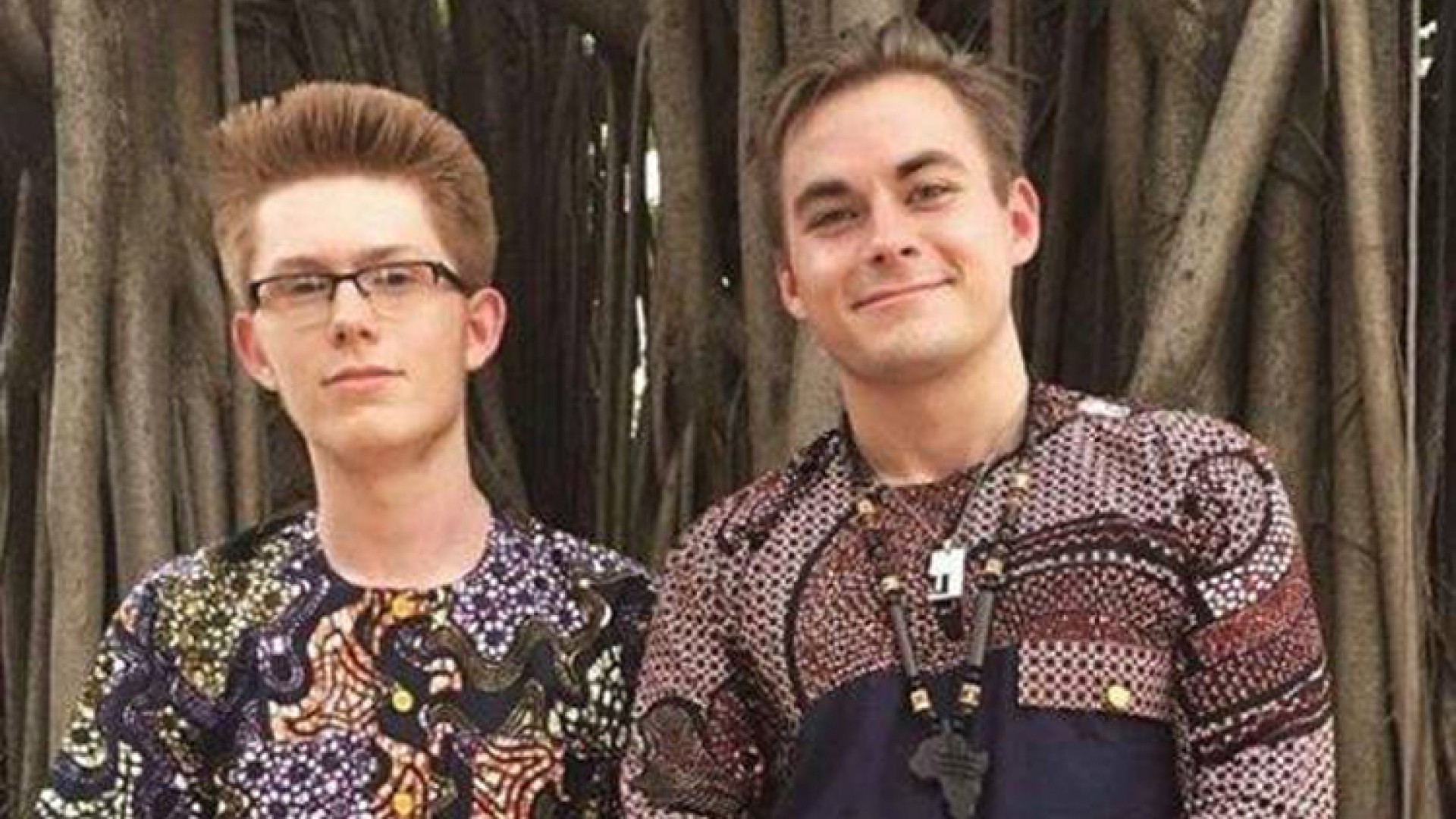
Two 2020 StFX graduates who as students launched a waste management company that re-manufactures plastic waste into consumer and industrial products via semi-industrial shredder and injection machines are among 11 entrepreneurs awarded Spark Nova Scotia funding, aimed at developing startups in the province outside of metro Halifax.
Maxwell Gauthier of Freeport, Bahamas, who graduated with a BBA with an advanced major in management and leadership, and Adam Starr, of Toronto, ON, a BBA graduate with a major in marketing and minor in philosophy, received $25,000 from the Spark Nova Scotia competition in support of their business, Drastic Scholastic Thermoplastic (DST).
They’re working on devising a better way to recycle plastics through community-based recycling. They will begin the initiative at StFX, and want to expand to other institutions.
“DST differs from traditional recycling methods in that we keep plastic waste local. In other words, we collect, sort, clean, and remanufacture plastic waste in the community it is consumed in,” they say.
Mr. Gauthier and Mr. Starr say they worked diligently on the Spark Nova Scotia application but weren’t expecting to get far.
“In fact, after we delivered our pitch, we said that if we didn’t win, the networking alone was worth it all. We felt fortunate just to be a part of such a fantastic group of ambitious people. Once we got the victory phone call, we were absolutely starstruck. It served as validation of our hard work and we were absolutely ecstatic.
“We firmly believe that Spark has given us the opportunity to propel our efforts to make a difference in the waste management industry.”
Their current plan is to use the Spark funding to develop a decontamination technology, system, or process that cleans and disinfects plastic waste. “This is a priority for us as our machines only process clean plastic and having clean plastic guarantees that plastic is repurposed into high-quality end products rather than being placed into a landfill. In fact, 91 per cent of Canadian plastic is not recycled and therefore ends up in landfills or oceans, according to the Environment and Climate Change Report, 2019,” they say. “Fundamentally, this is due to high levels of contamination.”
Starting at StFX, their aim is to divert plastic waste from landfills and oceans by creating a value-recovery system that empowers StFX to manage their own plastic waste. “This community-based solution to recycling does not yet exist in Canada and we hope to implement this solution to other academic institutions,” they say.
The duo say the business idea had its origin in summer 2019, when they travelled to Ghana, West Africa through StFX Service Learning. The trip was a two-month social justice internship, where they studied global change and economic development within a Ghanaian context.
“In Ghana, we worked with a local NGO that focused solely on rural economic development and this allowed us to see the plastic crisis firsthand,” they say. “In fact, the NGO we interned with was creating programs for reducing plastic waste and educating others on the dangers of plastic pollution. We were humbled by this experience and are inspired to implement community-based recycling in Canada starting at the university that gave us this fantastic opportunity: St. Francis Xavier University.”
Together, they were awarded a Wallace Internship, administered through StFX Innovation and Enterprise Centre, which granted them funding and resources to kick-start the business. This internship lasted for 12 weeks and allowed them to explore the venture in detail while receiving coaching and mentorship help. They worked closely alongside Paula Brophy, the program coordinator, and four other interns as they met weekly to develop the idea and solidify the business model. They say while it was handled virtually this year, it was an inclusive environment and helped them develop their strengths and weaknesses.
“We both agree that the Wallace Internship was one of the most engaging and useful experiences of our undergraduate degree. For this reason, we encourage any StFX student with a venture idea to apply,” they say.
“In our opinion, there is nothing better than working on something you are passionate about and getting paid for it. Throughout the Wallace Internship, we experienced the challenge of starting a business from the bottom-up in a pandemic and were extremely lucky to have learned so much through trial and error. Many of our key business learnings would not have manifested without the Wallace Family support.”
Both say that to them, entrepreneurship requires unconventional thinking and testing new strategies with existing problems. “Entrepreneurship interests us because it involves the creation and/or development of something novel that directly addresses a problem. We love learning how to find new avenues that deliver value to new customers through innovative problem-solving.
“Entrepreneurship is a constant yet rewarding challenge and every day presents us with new hurdles to overcome - making the overall process very exciting. We are passionate about climate change, waste management, and empowering individuals and communities.”
They say their business will be operating at StFX in the new year. “At StFX, we hope to collaborate with students, faculty members, and staff to create a formal system of collecting, sorting, cleaning, and processing plastic waste. We recognize that we can’t accomplish this by ourselves, so making university members aware of the plastic crisis present on our campus is a must.
“With a decentralized recycling system developed and prototyped, we hope to expand to other academic institutions throughout Nova Scotia and Canada. Plastic is an extremely valuable resource that is currently being wasted and we hope to change that at every academic institution.”

